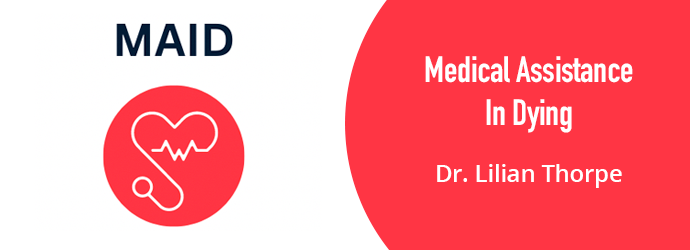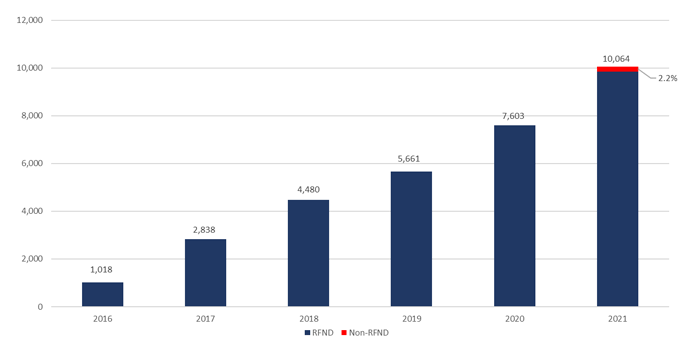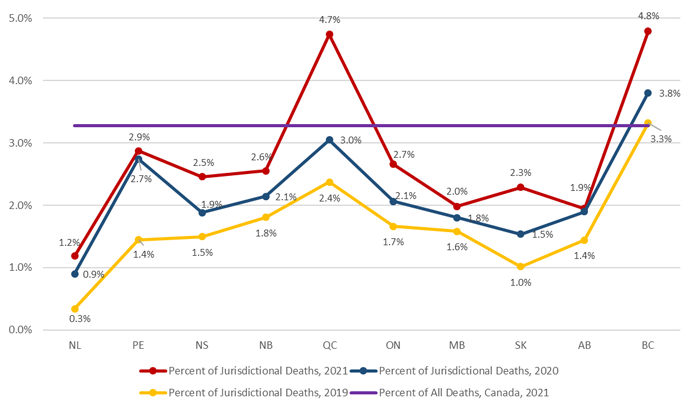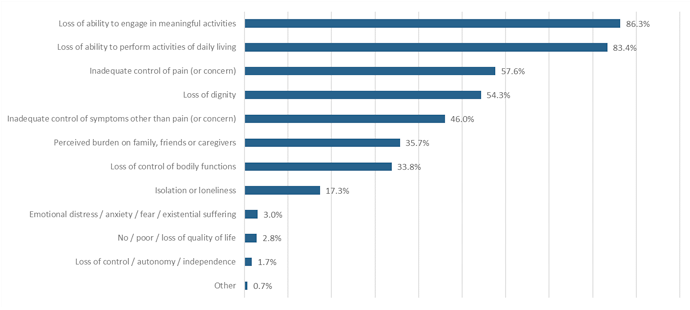
MAID has been available in Saskatchewan since 2016, with the passing of Bill C-14. Initial eligibility required that the person had to:
- Have a serious and incurable illness disease, or disability; AND
- Be in an advanced state of irreversible decline in capability; AND
- That illness, disease, or disability or that state of decline had caused them enduring physical or psychological suffering that was intolerable to them and that could not be relieved under conditions that they considered acceptable; AND
- That natural death had become reasonably foreseeable, taking into account all of their medical circumstances, without a prognosis necessarily having been made as to the specific length of time that they had remaining.
Bill C7 (March 2021) broadened eligibility to persons without reasonably foreseeable natural death (RFND), adding some additional safeguards, such as increasing the mandatory waiting period for 90 days, while MAID for sole mental illness was initially excluded until March 17, 2023 (recently deferred to March 2024). Bill C7 also removed the mandatory waiting period for people with RFND and allowed them to provide their consent ahead of time if they were at high risk of loss of capacity. This is not possible for people without RFND.
Numbers of people receiving MAID have increased considerably since 2016, with much variation across the country. The highest percentage of deaths due to MAID have been reported in BC and PQ, with Saskatchewan, Newfoundland and Manitoba generally reporting lowest rates. The most common condition responsible for the MAID request has been cancer, particularly lung cancer. Interestingly, the greatest nature of suffering reported has NOT been pain as initially anticipated, but loss of ability to engage in meaningful activities. Similarly, the early expectation that MAID would not be necessary if there was adequate access to palliative care has also not been confirmed, as many patients receiving even inpatient palliative care have sought and received MAID.
In Saskatchewan all formal MAID related activities fall under the jurisdiction of the provincial MAID program. This is located within the provincial HealthLine, which facilitates access to other resources. This has become particularly useful in MAID requests from people without RFND, who often have chronic conditions requiring augmented support from other programs, as well as consultation from professionals skilled in the particular health issue driving the MAID request. Provincial coordination also allows standardization of processes to protect vulnerable people, with oversight facilitated by central data collection. Patients, families, health providers and others can receive information and appropriate connections to MAID assessors through the free telephone number (1-833-473-6243) or fax number (1-833-837-9006)
In spite of excellent coordinated provincial support in Saskatchewan for MAID related activities, there are also many challenges. These had already increased with the broadening of eligibility to those without RFND but increased further with the release of the February parliamentary report of the Special Joint Committee on Medical Assistance in Dying: MEDICAL ASSISTANCE IN DYING IN CANADA: CHOICES FOR CANADIANS. This report recommended further broadening of eligibility to include minors deemed to have the requisite decision-making capacity upon assessment (only those with RFND) and advance requests for MAID. Along with the difficulties anticipated for development of processes to enable MAID for sole mental illness, there will need to be considerable work done to ensure that an appropriate balance between autonomy and protection is achieved. This work is ongoing at many levels.
Subsequent articles will cover all three of those upcoming challenges in more detail.
Total Number of MAID deaths in Canada, 2016 – 2021
Percentage of Total Deaths Attributed to MAID by Jurisdiction, 2019-2021
Nature of Suffering of Those Who Received MAID, 2021
Dr. Thorpe is a clinician and professor at the University of Saskatchewan who is actively involved in MAID related clinical work, teaching and research. She has co-authored a number of MAID related practice guidelines and is on the Health Canada MAID Practice Standards Task Group developing professional guidelines for clinicians involved in complex MAID assessments and provision. She is honored to work with the professionals at the Provincial MAID Program which strives to balance patient wishes for autonomy at the end of life with protection of vulnerable people.
Provincial MAID Program Web Page








-(1).png?width=110&height=150&ext=.png)




